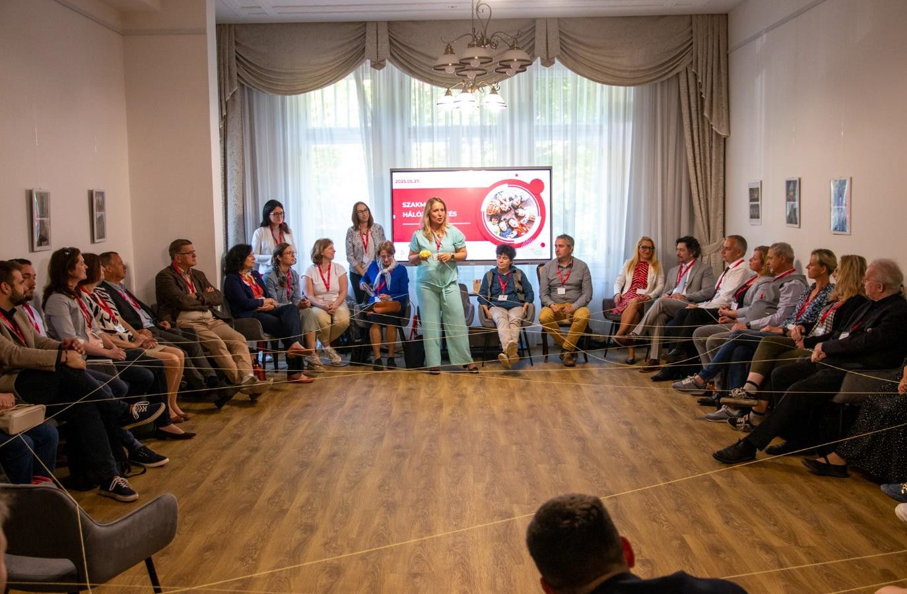
Hungarian children face unprecedented challenges – groundbreaking joint effort to reduce screen time for young people
40 national professional organisations in Hungary have joined forces to formulate guiding principles concerning children's screen use. This initiative was launched by the Bethesda Children's Hospital and co-organised by the MCC Youth and Learning Research Institutes.
The average daily screen time for 8–12 year old exceeds 5.5 hours, and for teenagers, this number is even more striking, reaching up to 8 hours per day. This phenomenon is not only concerning parents; more and more professional organisations are sounding the alarm and urging coordinated societal action.
The professional Forum resulted in 10 key recommendations:
- Children should not have their own smart devices (smartphone, laptop, smartwatch, etc.) under the age of 10 (until the end of primary school), and ideally not under the age of 14 (until the end of upper primary school).
- Children younger than 3 years old should not spend any time in front of a screen, except for communicating with absent family members.
- Children should not register for social media platforms under the age of 14.
- The average daily recreational screen time for children should not exceed:
- 30 minutes for preschoolers.
- 60 minutes for lower primary school children.
- 90 minutes for upper primary school children and older.
- Phone use should be followed by an equal amount of physical activity.
- The introduction of screen-free days is recommended.
- All screen use should be avoided in the last hour before bedtime.
- Every child and young person should engage in at least 60 minutes of physical activity daily at the expense of screen time.
- Efforts should be made towards conscious screen use, and habitual, aimless content consumption should be avoided.
- Excessive or problematic screen use carries risks to mental health, and should therefore be avoided.
- No child should have a smart device without consistent parental supervision.
- Families (parents, grandparents, children) need to be equipped with the appropriate knowledge and skills to ensure a healthy relationship with the digital world. For parents, this activity should begin during pregnancy.
No one questions the benefits offered by the digital world, but it's important to find a balance. The goal is for children to rediscover the joys of play, movement, creativity, and community experiences.
The Bethesda Screen Reduction Program, which offers great ideas for an offline childhood in a downloadable e-book can provide assistance in this endeavor.
Hungarian organisations and professionals that have officially adopted the charter so far:
- Active Hungary State Secretariat
- ELTE Alfa Generation Lab
- Bethesda Children's Hospital
- Diocesan Authority of Catholic Schools
- State Secretariat for Youth Affairs
- Association for Children's Rights
- Youth Research Institute
- Dr. Bence Kas, speech therapist, linguist, associate professor, ELTE Gusztáv Bárczi Faculty of Special Education, MTA- ELTE Research Group on Language Development Disorders
- Catholic Pedagogical Institute
- Learning Research Institute
- Hungarian Association of Public Health Nurses
- RCH Education Service (RCH stands for Reformed Church in Hungary)
- MSZKI Human Dignity Strategy Center
- Reformed Pedagogical Institute
- Saint Stephen Institute
- Dr. Dániel Tordas
- § National Center for Spinal Disorders
- National Youth Council of Hungary
- NIT for Youth Nonprofit Ltd.
Author: Anikó Pázmándi